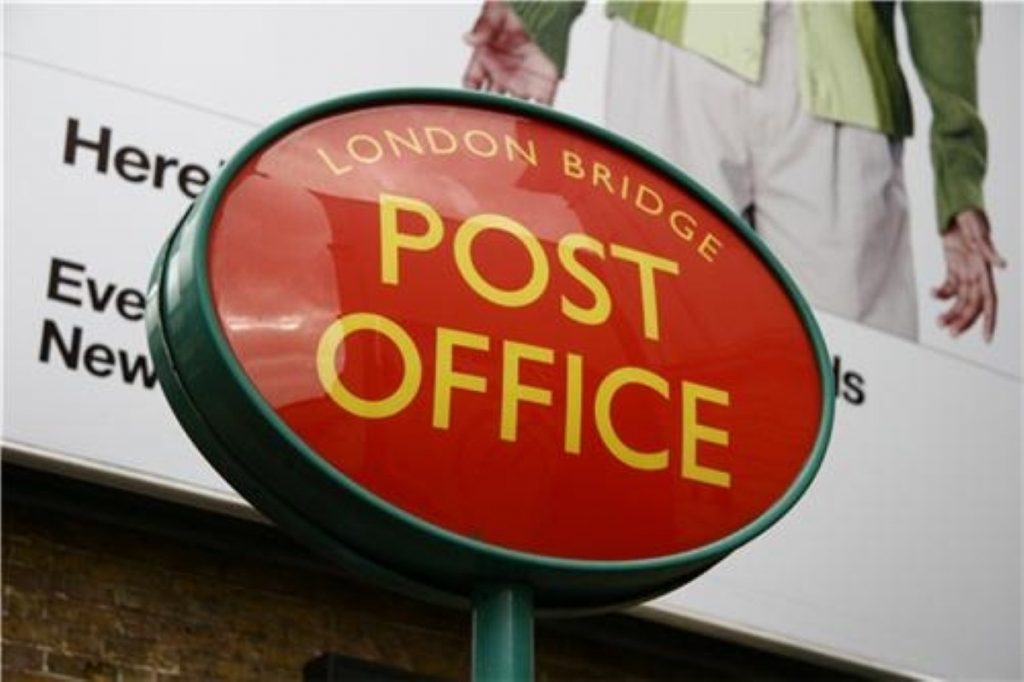2,500 post office closures ‘to save the network’
The government has today promised to keep supporting the Post Office with an investment package of £1.7 billion – but warned 2,500 branches would have to close.
Trade and industry secretary Alistair Darling said the funding, which continues the existing £150 million annual subsidy until 2011, would put the national network of 14,000 post offices on a “firm footing”.
The Post Office network is currently losing £4 million a week, up from £2 million a week last year. Four million fewer people use post offices than two years ago, and branches are also losing many of their traditional services, such as issuing driving licences.
As a result, the announcement earlier this year that the Post Office card account (POCA) would not be extended beyond 2010 when its current contract expires was met with dismay. Critics warned the loss of this revenue would send most branches under.


However, today Mr Darling confirmed a new, similar account would be introduced after 2010 and said that with the new reforms, the Post Office network would be in a “strong position” to bid for the contract.
Combined with plans for post offices to take on new services, such as hosting 4,000 free cash machines around the country, he said the network’s future would be more secure.
Today’s proposals also call for 500 Post Office counters to be set up in vans, village halls, community centres or pubs, which could serve small, remote communities.
Mr Darling acknowledged that 2,500 branches would have to close to allow the Post Office network to continue, but he insisted communities would not lose out.
The government today published new access criteria for post offices, which state that 99 per cent of the population must have a branch within three miles, and 90 per cent must have one within one mile.
“Post offices face a long-term challenge – internet, e-mail and text-messaging have meant that people, young and old alike, increasingly use the phone or internet banking, cash point machines or direct debits to pay their bills,” he said.
He added: “Our strategy aims to protect the national network, equipping it to meet the challenge of today.”
The National Federation of Subpostmasters (NFSP) welcomed the announcements, and general secretary Colin Baker said: “A programme of closures is better than the slow death of the entire network.”
But although the Conservatives welcomed the decision on the Post Office card account, they said the government had no long-term vision for the network and was only closing as many branches as it thought it could get away with.
“This will bring fear and anxiety to people, often the most vulnerable, in every part of the country,” said shadow Post Offices minister Charles Hendry.
He added: “The government needs to recognise that if the local Post Office closes, often the last shop in the village closes as well, and a van for a couple of hours a week is no replacement for a Post Office open full time.”
Liberal Democrat trade spokesman Ed Davey also described the closures as a “betrayal” and warned that unless ministers freed post offices from Royal Mail’s “restrictive contracts”, more branches would be forced out of business.












